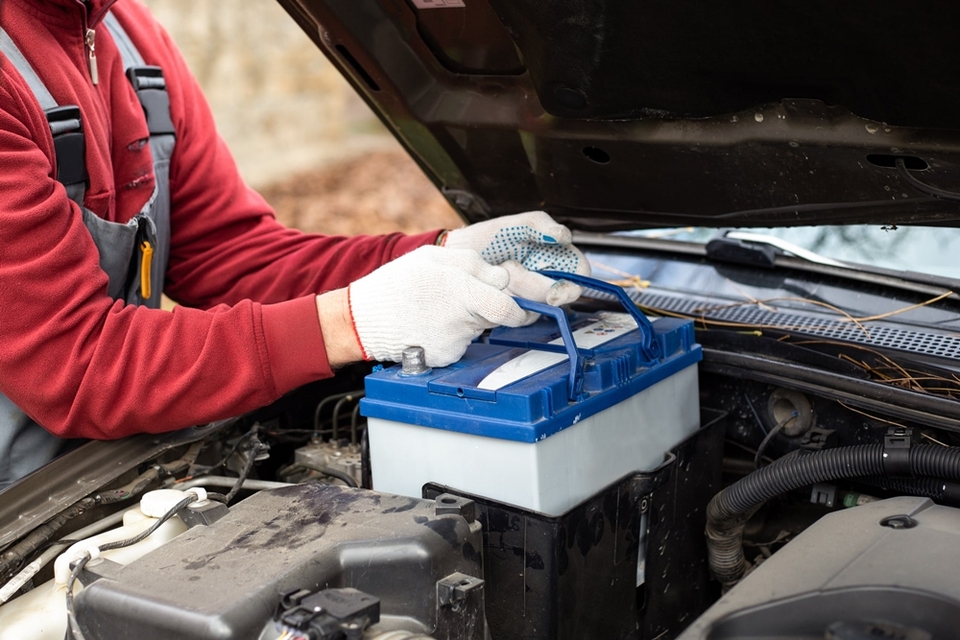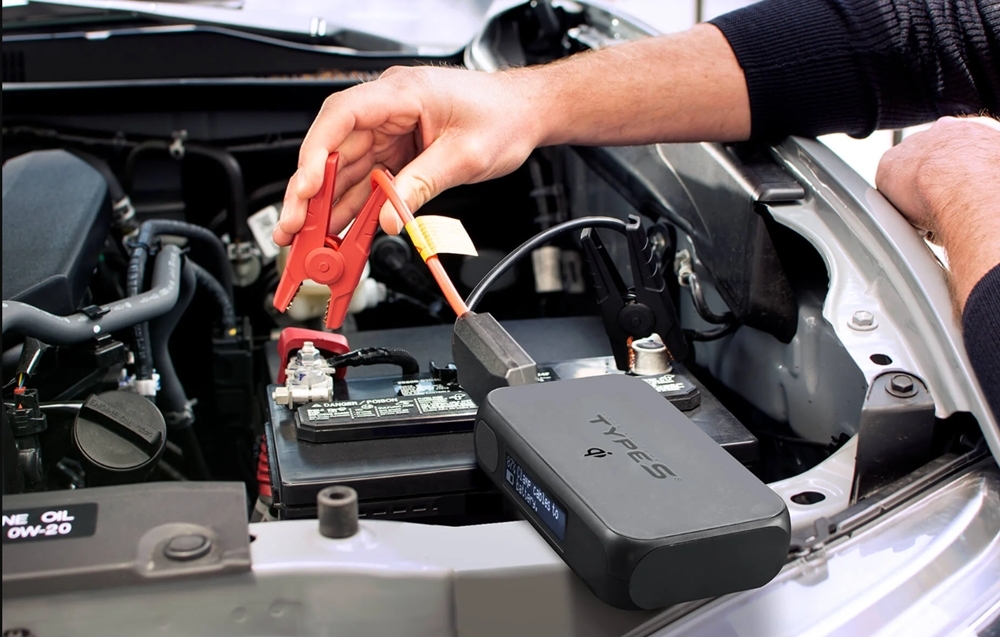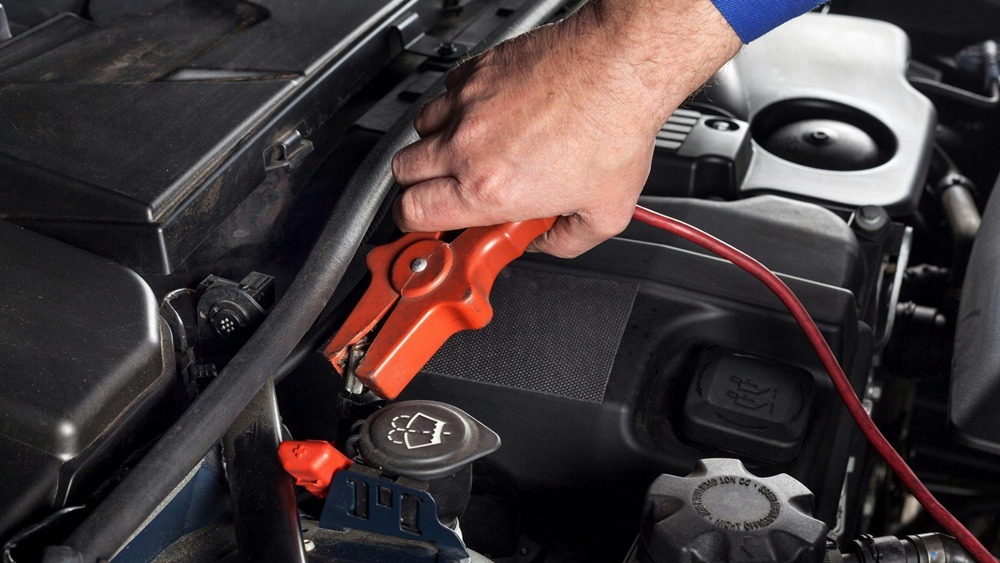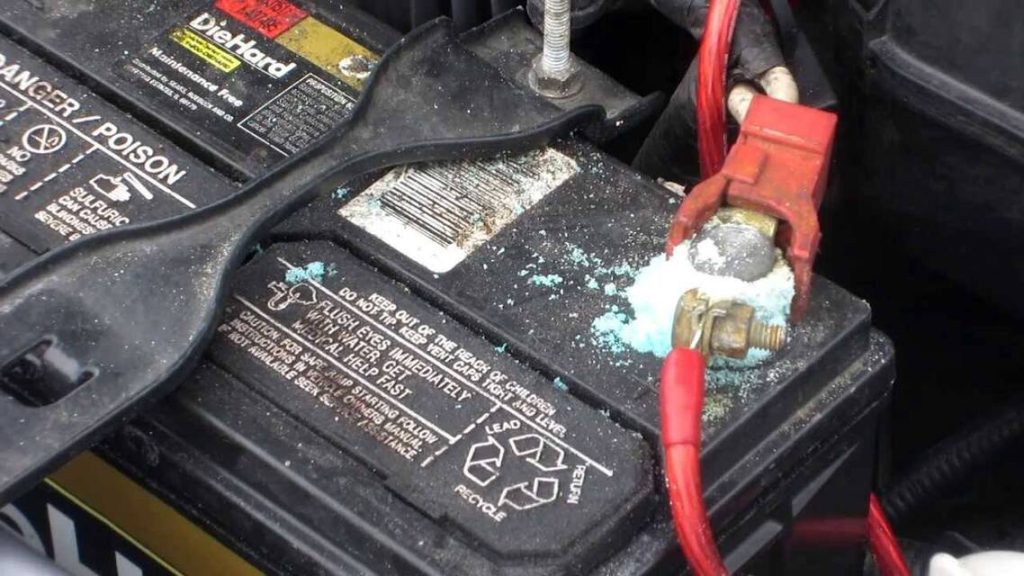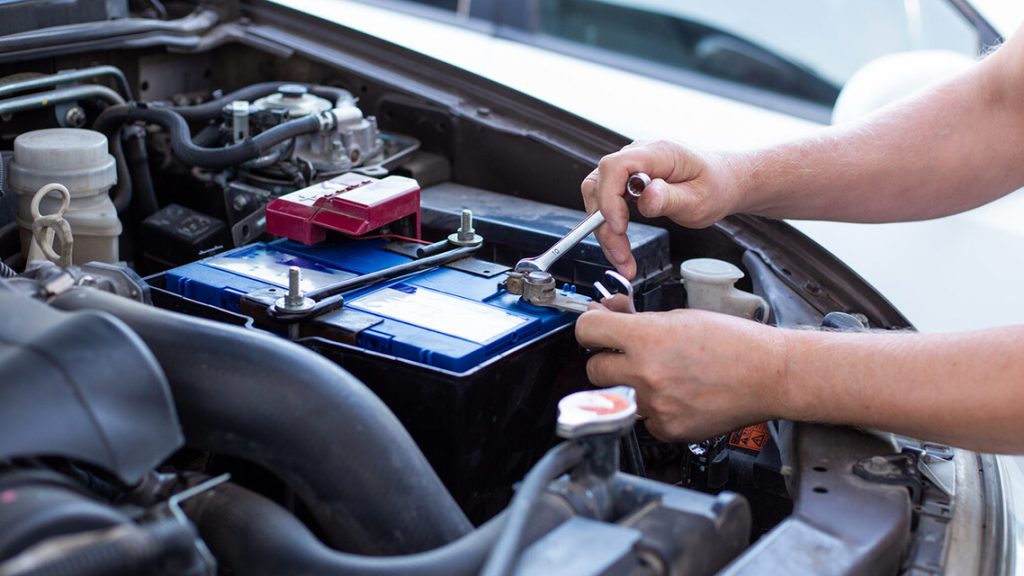Overview: Car Battery Replacement Costs
Car battery replacement cost is something every vehicle owner will eventually need to consider. Whether your car won’t start on a freezing winter morning or your battery warning light has been glowing on the dashboard, replacing this essential component is an inevitable part of car ownership. In this comprehensive guide, I’ll walk you through everything you need to know about car battery replacement cost—from average prices across different vehicle types to the factors that influence what you’ll pay.
Also read: Top 9 Best Portable Jump Starter for Emergency Roadside Situations
I’ll also share some personal experiences, money-saving tips, and advice on when DIY makes sense versus when to call the professionals.
| Brand | Price Range | Warranty | Avg. Lifespan |
|---|---|---|---|
| DieHard | $100–$200 | 3–5 yrs | 4.5 yrs |
| Optima | $150–$300 | 3 yrs | 5+ yrs |
| ACDelco | $90–$180 | 2–4 yrs | 4 yrs |
| Duralast | $70–$150 | 2 yrs | 3.5 yrs |
Download the table
Understanding New Car Battery Costs
The typical car battery replacement cost can vary widely depending on several factors. Most standard car batteries cost between $50 and $120 for economy models, while premium batteries with advanced features can run anywhere from $90 to $200. Luxury vehicles, hybrids, and cars with specialized electrical systems often require more expensive batteries, sometimes costing $200 to $300 or more.
During my last battery replacement for my sedan, I paid about $145 for a mid-range battery with a good warranty. The price included the battery itself plus a $20 core charge that was refunded when I returned my old battery for recycling.
Also read: How To Jump A Car With Jumper Cables: Easy 10 step Guide
The type of battery significantly affects the car battery replacement cost. Here’s a breakdown of common battery types:
- Lead-acid batteries (traditional): $50–$120
- Enhanced flooded batteries (EFB): $110–$210
- Absorbent glass mat (AGM): $150–$300
- Lithium-ion batteries: $200–$500+
Beyond the battery itself, you’ll need to factor in installation costs if you’re not replacing it yourself. Most auto shops and dealerships charge between $30 and $50 for battery installation, while some places offer free installation if you purchase the battery from them.
When I called around for quotes last year, I found price differences of up to $40 for the exact same battery model between different shops in my area. This taught me that shopping around can really pay off when it comes to car battery replacement cost.
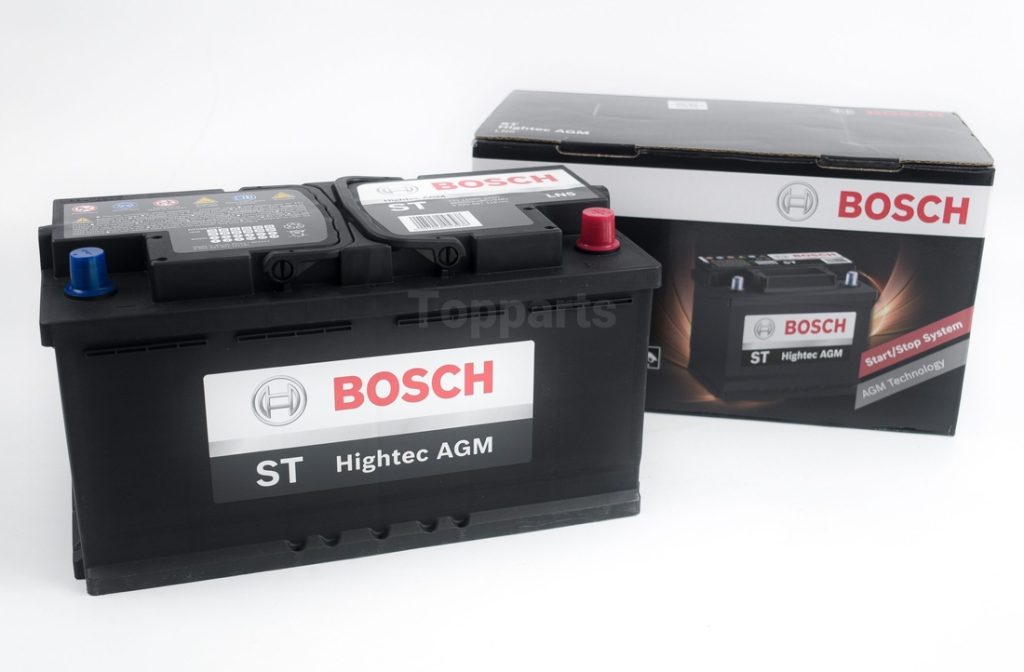
Factors That Influence Your Car Battery Replacement Cost
The final price tag for your battery replacement depends on several key factors beyond just the battery type. Understanding these can help you budget appropriately and avoid unexpected expenses related to car battery replacement cost.
Also read: How to Clean Corrosion Off Car Battery: 6 Steps to Complete Terminal Cleaning
Vehicle Make and Model
Your specific vehicle often determines the battery size, type, and placement, all of which directly affect the overall car battery replacement cost. Luxury vehicles like Mercedes-Benz or BMW typically require more expensive batteries with advanced features. Additionally, some vehicles have batteries tucked into tight or unusual locations—under seats or in the trunk—which can drive up labor charges.
When my friend needed a replacement for his BMW, he was shocked to discover the battery price was nearly double what I paid for my Toyota. Even more surprising was learning that his vehicle required computer reprogramming after battery replacement—an added $100 service that increased his car battery replacement cost significantly.
Geographic Location and Climate
Where you live can impact both battery life and car battery replacement cost. Extreme climates—either very hot or extremely cold—tend to shorten battery lifespan, meaning you might need replacements more often. Additionally, pricing can vary regionally due to:
- Local competition among repair shops
- Shipping costs to your location
- Sales tax and environmental fees
- General regional pricing trends
Battery Warranty
Batteries with longer warranties tend to have a higher upfront car battery replacement cost, but they may save you money over time. Most batteries come with warranties ranging from 1 to 5 years. Personally, I’ve found that paying a bit extra for a longer warranty has been worth it for peace of mind and fewer surprise replacements.
Here’s a rough guideline for battery prices by warranty length:
- 1–2 year warranty: Budget batteries ($50–$100)
- 3–4 year warranty: Mid-range options ($100–$200)
- 5+ year warranty: Premium batteries ($150–$300+)
DIY vs. Professional Installation: Weighing the Cost
One of the easiest ways to cut down on your car battery replacement cost is to do the job yourself. Many standard replacements are simple enough for car owners who have some basic tools and mechanical confidence.
The DIY Route
When I replaced my car battery myself last winter, I saved about $60 in labor costs. Here’s what you’ll need:
- Basic tools (like a wrench set)
- Gloves and safety goggles
- Optional: Battery terminal cleaner
- 30–60 minutes of your time
The steps are fairly straightforward:
- Disconnect the negative terminal first (for safety)
- Disconnect the positive terminal
- Remove any holding brackets
- Take out the old battery
- Clean the terminals if needed
- Drop in the new battery
- Reconnect the terminals—positive first, then negative
Taking the DIY route isn’t for everyone, but it can make a real difference in your total car battery replacement cost.

7 Hidden Costs of Car Battery Replacement
- Installation Fees
Not all stores offer free installation — some mechanics charge $30 to $300 depending on complexity. - Battery Core Charges
Usually $10–$25, refundable when you return your old battery — but it’s an upfront cost many forget. - Luxury Vehicle Requirements
High-end vehicles often need specialty batteries and reprogramming, adding $100+ to the base cost. - Emergency Replacement Charges
Calling roadside assistance or buying on-the-spot costs significantly more than planning ahead. - Geographic Price Differences
Climate and region affect both battery life and pricing — hot/cold areas often pay more due to supply/demand and shipping. - Limited Warranty Pitfalls
Cheaper batteries often come with shorter warranties, potentially costing more in the long run due to earlier failure. - Labor for Hard-to-Reach Batteries
Vehicles with batteries under seats or behind panels incur more labor time and cost.
Car Battery Replacement: Myths vs. Facts
Clearing up misunderstandings about car batteries can help you make smarter, more cost-effective decisions. Let’s separate fact from fiction:
| Myth | Fact |
|---|---|
| “All car batteries are the same.” | Batteries vary in size, capacity, chemistry (like AGM or lithium-ion), and cold-cranking amps. Using the wrong type can shorten battery life or cause issues. |
| “You only need to replace your battery when it dies.” | Waiting until a battery fails can leave you stranded. Proactive replacement saves money by avoiding emergency service costs. |
| “More expensive batteries always last longer.” | Not necessarily. Some mid-range batteries offer excellent performance and warranties. The best choice depends on your driving habits and climate. |
| “A battery can be tested just by starting the car.” | A weak battery might still start your car, but load testing or voltage testing gives a more accurate health check. |
| “You can’t install a battery yourself.” | Many car owners can replace their battery with basic tools and safety gear. However, some vehicles (especially luxury models) require professional installation and reprogramming. |
| “If your car sits unused, the battery will be fine.” | Infrequent driving leads to battery drain. Use a trickle charger if your vehicle is parked for extended periods. |
| “Jump-starting fixes a bad battery.” | Jump-starting can get you moving temporarily, but it doesn’t fix the underlying problem. A failing battery will likely die again soon. |
Recalibration After Battery Replacement
In some modern vehicles, especially luxury models, installing a new battery isn’t as simple as plugging in a new unit. Many cars require electronic recalibration or reprogramming of onboard systems after battery replacement. In these cases, the potential savings from DIY installation might be negated if you end up needing a mechanic to complete the job. This added step can significantly increase your car battery replacement cost, especially if specialized diagnostic tools are required.
Professional Mechanic Installation
If you’re not comfortable handling a battery swap yourself, professional installation is a relatively affordable way to avoid complications. Many auto parts stores offer free installation when you buy a battery from them, while independent mechanics typically charge between $50 and $300 depending on the complexity. For luxury or European vehicles, car battery replacement cost can rise quickly due to additional steps like system resets or battery registration.
Professional installation is worth considering if:
- Your battery is hard to access
- Your vehicle requires electrical system resets
- You don’t own the right tools
- You have physical limitations
- You’re concerned about damaging sensitive electronics
- Your car needs post-installation reprogramming
In these situations, paying a bit more for expert service can actually help avoid costly mistakes that might increase your overall car battery replacement cost.
| Vehicle Type | Battery Cost | Install Fee | Total Cost |
|---|---|---|---|
| Compact Car | $80–$120 | $0–$50 | $80–$170 |
| SUV/Truck | $100–$200 | $30–$70 | $130–$270 |
| Luxury/Hybrid | $150–$500 | $50–$150 | $200–$650 |
Where to Buy: Finding the Best Car Battery Price
Shopping around is one of the easiest ways to reduce your car battery replacement cost. Depending on where you shop, the price for the exact same battery can vary widely. Here’s a breakdown of the most common sources, with their pros and cons:
Auto Parts Stores
Retailers like AutoZone, Advance Auto Parts, O’Reilly, and NAPA offer competitive pricing, frequent discounts, and additional perks like free installation and battery testing. Many will also recycle your old battery at no cost.
Last spring, I took advantage of a sale at my local store and saved $35. Not only was the price great, but they also installed the battery for free and took care of the recycling.
Big Box Retailers
Stores such as Walmart, Costco, and Sam’s Club often have lower prices on car batteries—sometimes 10–20% less than auto parts stores. However, these savings may come at the cost of limited installation support. For example, Costco generally doesn’t install batteries on-site, which could raise your car battery replacement cost if you need professional help afterward.
Dealerships
Dealerships are usually the most expensive option, often charging 20–40% more than other outlets. That said, they’re also the most reliable when it comes to compatibility and proper installation—especially for luxury or exotic vehicles with complex electrical systems. If you want total peace of mind, the higher car battery replacement cost might be justified.
Online Retailers
Websites like Amazon, eBay, and specialty auto shops can offer discounted prices, especially on specialty or hard-to-find batteries. However, you’ll need to account for shipping fees and handle installation on your own. For standard battery replacements, the effort rarely justifies the small savings, but for niche applications, this route can lower your total car battery replacement cost significantly.
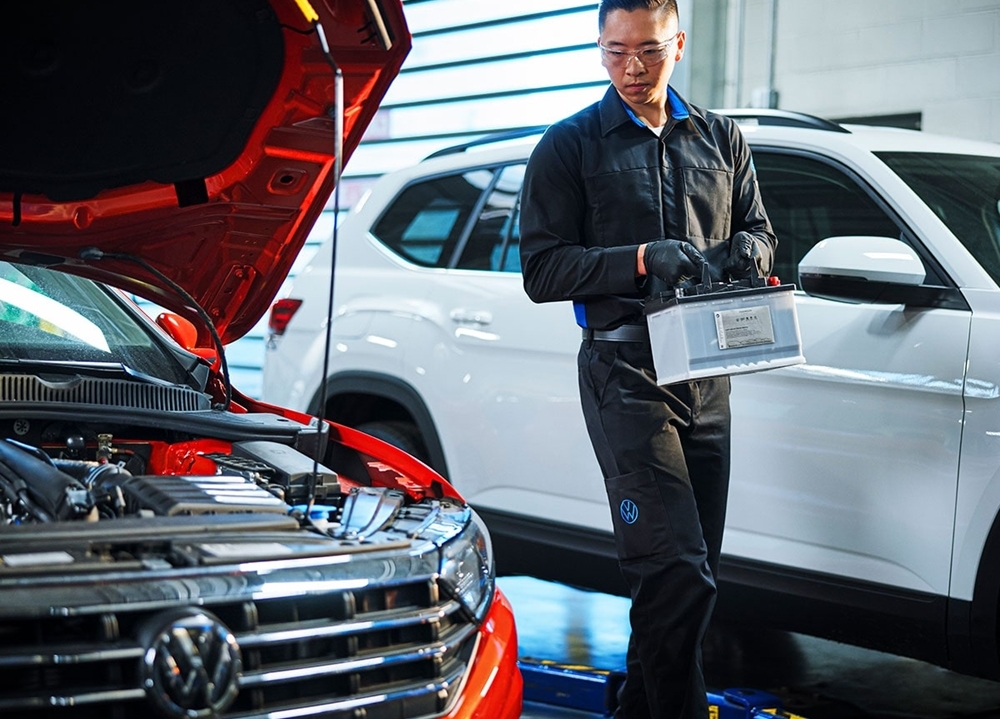
The Real Cost of Delaying Battery Replacement
Putting off a necessary battery replacement to avoid the perceived expense can actually lead to greater costs in the long run. While it’s tempting to delay, the risks and potential damages often outweigh any short-term savings. Let’s break down why.
Emergency Replacement Costs
When my battery died without warning at the airport parking lot after a week-long trip, I had no choice but to call roadside assistance. That emergency replacement ended up costing nearly twice what I would have paid if I’d just addressed the early warning signs. Emergency services often charge premium rates—not just for the battery itself but also for the urgent service call, making your car battery replacement cost spike unexpectedly.
Potential Damage to Other Systems
Driving with a dying battery puts extra stress on your vehicle’s electrical system, especially the alternator. As the battery struggles to hold a charge, the alternator must work overtime to compensate. This added strain can lead to early alternator failure—an expensive repair typically ranging from $500 to $1,000 with parts and labor. What started as a manageable car battery replacement cost can quickly escalate into a major financial setback if left unchecked.
Inconvenience and Safety Concerns
Getting stranded due to a dead battery is more than just a hassle—it can also pose serious safety risks. Whether it happens late at night, during bad weather, or in a remote location, the consequences can be far worse than the inconvenience. A proactive approach may cost a little upfront, but it brings peace of mind and helps you avoid crisis-mode spending later.
How to Extend Your Battery Life
Once you’ve invested in a new battery, taking care of it can delay your next car battery replacement cost and extend the life of your vehicle’s electrical system. Here are a few ways to maximize the life of your battery:
1. Drive Regularly
Short trips don’t allow your battery to fully recharge. Try to take your vehicle for a longer drive (at least 15–20 minutes) once a week to keep the battery healthy.
2. Keep Battery Terminals Clean
Corrosion at the terminals can prevent proper charging and place additional strain on the battery. A quick scrub with a wire brush and a solution of baking soda and water can keep the terminals in good shape.
3. Watch for Parasitic Drains
Accessories like dash cams, aftermarket stereos, or faulty modules can draw power when the car is off. If your battery keeps dying, have a mechanic inspect for parasitic drains that may be slowly depleting your charge.
4. Use a Trickle Charger
If your vehicle sits unused for long periods—such as a seasonal or backup car—a trickle charger is a great investment. For $20–$50, it keeps the battery topped off without overcharging. I use one for my winter-stored car, and it’s helped extend the battery’s life by over two years.
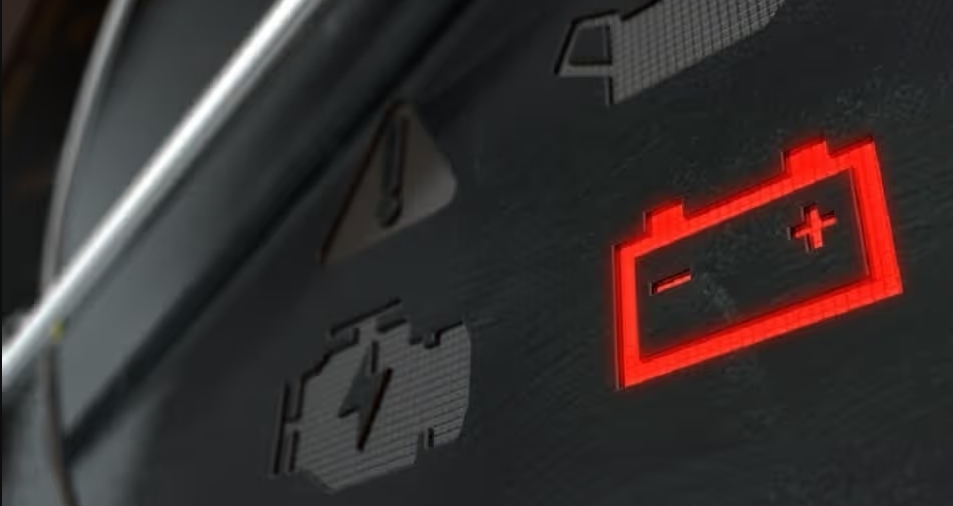
Signs Your Battery Needs Replacement
Learning to recognize when your battery is nearing the end of its life can help you avoid emergency breakdowns and plan ahead for the car battery replacement cost before it catches you off guard.
1. Age
Most car batteries have a lifespan of 3 to 5 years. If yours is approaching or past this range, it’s smart to start thinking about a replacement—even if you haven’t noticed issues yet.
2. Slow Engine Crank
When you turn the key and the engine cranks sluggishly or takes longer than usual to start, it often means the battery is losing its charge-holding ability.
3. Dashboard Warning Light
Most modern vehicles are equipped with a battery warning light. If this symbol lights up on your dashboard, don’t ignore it—it’s a sign that something in your charging system may be failing.
4. Electrical Issues
Are your headlights dimming when you idle? Do your power windows or radio behave erratically? These are often early warnings of a weakening battery.
5. Swollen Battery Case
If the battery case looks bloated or distorted, it could be the result of internal overheating—a clear sign it’s time for a replacement.
6. Terminal Corrosion
A white or bluish powder around your battery terminals may signal acid leakage. This buildup can interfere with proper electrical connection and is often a sign of a battery near failure.
When my car started taking an extra second or two to start in the mornings, I had it checked at my local auto parts store. The free battery test showed it was losing strength, which gave me the chance to plan the replacement on my own schedule—and avoid a costly emergency situation.
Frequently Asked Questions About Car Battery Replacement Cost
How much should I expect to pay for a car battery replacement?
Car battery replacement cost typically ranges from $75 to $300, depending on your vehicle’s make and model, the type of battery you need, and whether you install it yourself or have it done professionally. Luxury and hybrid vehicles often require specialized batteries that can cost even more.
Can I replace a car battery myself to save money?
Yes! If you’re comfortable with basic tools and safety precautions, DIY battery replacement can save you $50–$100 in labor costs. Just be aware that some modern vehicles require a system reset or battery reprogramming after installation, which could still incur a professional fee.
How long does a typical car battery last?
Most car batteries last between 3 and 5 years, depending on your driving habits, climate, and how well the battery is maintained. If you’re nearing the 3-year mark, it’s smart to budget ahead for the car battery replacement cost.
What are the signs that my battery is going bad?
Common warning signs include:
Slow engine cranking
Dim headlights or electrical issues
Dashboard battery light
Swollen battery case
Corroded terminals
If you notice any of these symptoms, have your battery tested before it fails.
Do I need a special battery for my hybrid or luxury vehicle?
Battery replacement cost, sometimes reaching $500 or more, especially if reprogramming or advanced diagnostics are needed.
Does a car battery come with a warranty?
Most car batteries include warranties ranging from 1 to 5 years. While batteries with longer warranties tend to cost more, they often provide better long-term value, especially if you experience premature failure.
Is it cheaper to buy a battery online?
Online prices can be competitive, especially for specialty batteries, but don’t forget to factor in shipping costs and DIY installation. In many cases, buying locally from an auto parts store with free installation may actually save you money overall.
Need a mobile mechanic? Find one on the Mobile Mechanic Directory
Final Thought: Budgeting for Battery Replacement
The car battery replacement cost is a routine part of vehicle maintenance, but it often catches drivers off guard. Planning ahead can turn it from an emergency into a simple maintenance task.
Most drivers can expect to spend anywhere from $75 to $300+ depending on the vehicle make, battery type, and whether professional installation is needed. That range may sound broad, but it’s fairly predictable once you understand your car’s requirements and typical car battery replacement cost.
Setting aside a small amount each year for battery replacement—especially as your battery ages—can make the expense easier to absorb when the time comes. This kind of proactive budgeting helps avoid unexpected stress when your battery finally gives out.
Personally, I’ve found that investing in a mid-range battery with a solid warranty has been the best value. These batteries offer reliability without breaking the bank, and they often last longer than cheaper alternatives.
By staying aware of the signs of a weakening battery and understanding what goes into car battery replacement cost, you can make smarter decisions—and avoid being stuck on the side of the road at the worst possible time.

